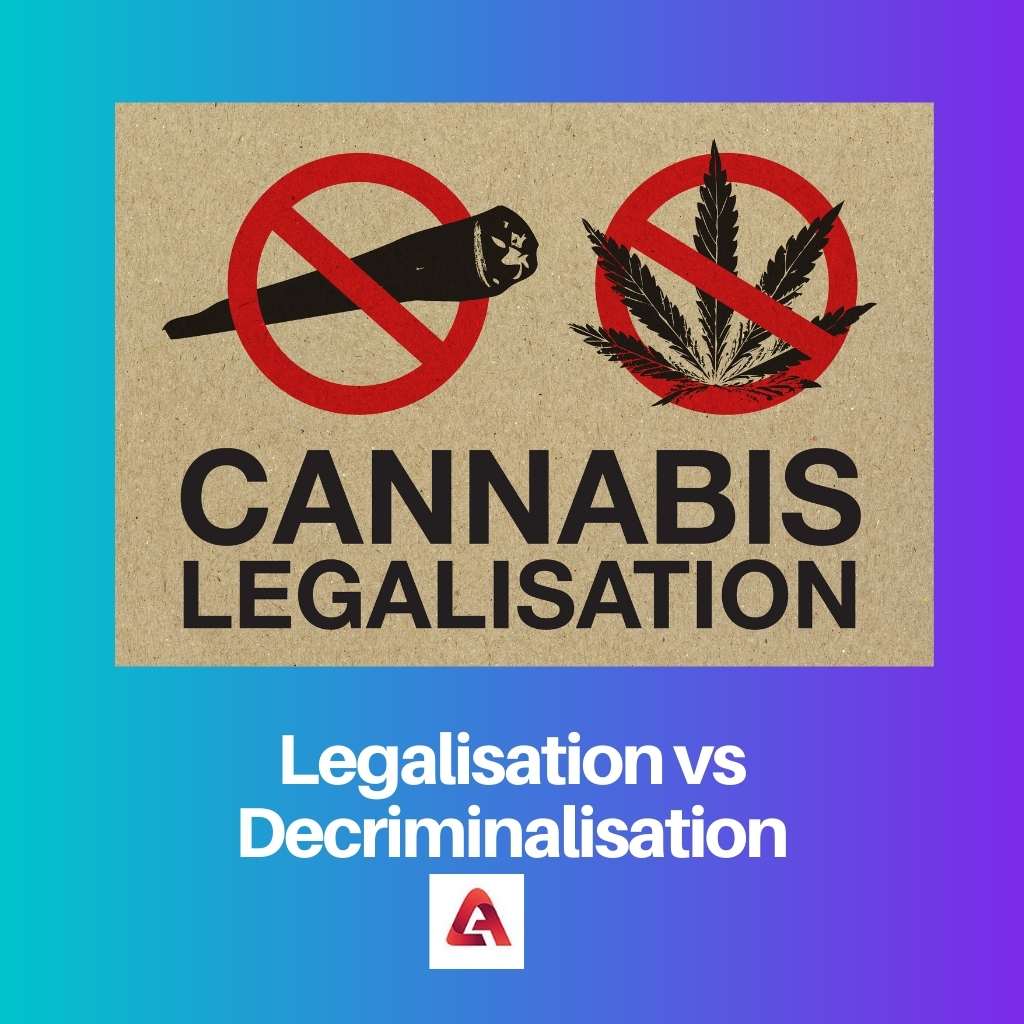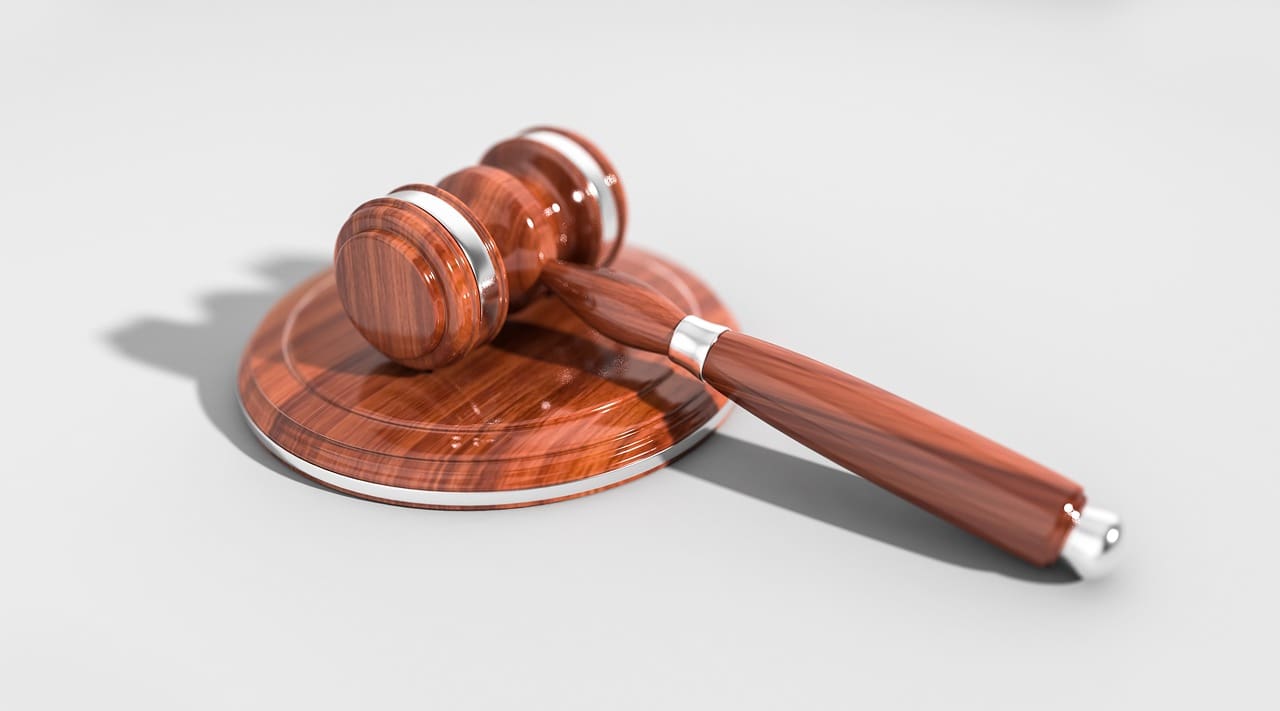People use the terms Legalisation and decriminalisation interchangeably. But very few are aware of the fact that the two terms aren’t the same.
They have a very thin line of difference that has the potential to create a big impact, so, it is better to be aware of it.
Key Takeaways
- Legalisation makes an activity legal and regulated by the law, while decriminalization removes criminal penalties.
- Legalisation allows the government to control and tax the activity, while decriminalization only removes criminal charges.
- Legalization is more comprehensive and involves more changes than decriminalization.
Legalisation vs Decriminalisation
The lThe government regulates legalization of previously illegal activities to ensure safety and prevent abuse. Examples include cannabis use, gambling, and prostitution. Decriminalization is a more lenient approach to dealing with specific activities, such as drug possession and traffic offences.

Legalisation is the process of making an act legal. This means that the respective activity is no longer illegal in the eyes of the law of that particular country.
It is possible that an act is legal in one country but wholly prohibited or illegal in another. Decriminalisation is the official process of doing an act entirely out of the non-criminal category in the eyes of the law.
But it doesn’t mean that it is entirely legal, either. A decriminalised act still can drag the convict into paying a fine or being subject to some minimal punishment.
Comparison Table
| Parameters of Comparison | Legalisation | Decriminalisation |
|---|---|---|
| About | It is considered that Decriminalisation depends upon changing views of society. | It is the process of making an act completely non-criminal. |
| Views of society | Legalisation has little to no connection with the views of society. | If prostitution is legalised, then there will be no charges on the people involved in the act. |
| Belief | A legal act is also a decriminalised act. | A decriminalised act may or may not be legal. |
| Example | If prostitution is decriminalised, then there will be minor penalties but no major punishment. | Legalisation makes an act entirely free of penalty. |
| Penalties | Legalisation makes an act entirely free of liability. | Decriminalisation makes an act subject to minor penalties. |
What is Legalisation?
The explanation of legislation is in its name itself. Legalisation is described as a process in which an act, no matter how big or small, is declared legal in the eyes of the law.
Many lengthy procedures and formalities must be followed to legalise an act. This means that the show now legalised, is no longer prone to punishments or penalties.
Anyone found committing the act cannot be asked for a penalty, nor can they be punished. The legalisation of any action has nothing to do with society’s views, and it doesn’t change with it.
Many long discussions and thoughts are given before concluding the legalisation of an act. It is safe to say that legal activity is ultimately a decriminalised act, but vice versa is not valid.
For example, if prostitution becomes legalised, the people involved in the activity are no longer subject to fines or punishment. There are already debates about several topics like homosexuality, abortion, euthanasia, and breastfeeding in public.
Some countries like the Netherlands and Germany declared prostitution legal long ago, while some Muslim countries and the Philippines still believe it is entirely legal.

What is Decriminalisation?
The use of the suffix ‘de’ in decriminalisation does its job quite nicely. Decriminalisation is declaring an act as no longer under criminal activities.
Therefore all the criminal penalties like fines and punishments are removed from that act. People mistake decriminalisation as the same as legislation, but it is not.
Even though the act is declared non-criminal, it still cannot be placed the same as being legal even though decriminalisation frees an action from being of the criminal category but still does not give it the right to be permitted in the eyes of the law.
If people are found committing a decriminalised act, they are still bound to pay a fine or undergo some minimal punishment. The penalties and penalties are many e minors, but one cannot avoid them.
It is a belief that decriminalised acts ultimately become legalised after a while. Also, it has been brought to notice by many people that decriminalisation varies with the change in public thoughts.
However, the bottom line remains that a decriminalised act is not necessarily legal but can eventually become one in the future.
Main Differences Between Legalisation and Decriminalisation
- Legalisation is the process of making an act legal in the eyes of the law, whereas decriminalisation is the act of making an act completely non-criminal.
- Legalisation frees an act of penalties and punishments, while decriminalisation makes the act subject to minor penalties and punishments.
- Legal action can be seen as a decriminalised act, but a decriminalised act cannot be declared as a legal action unless passed by the law.
- The legalisation of an act has very little to no business with the views and thoughts of people, while Decriminalisation is regarded as the result of changing views and thoughts of the people.
- For example, if prostitution is legalised, there will be no charges or punishments for the people involved. On the other hand, if prostitution is decriminalised, then there will be charges on the individuals involved in the act but negligible to no punishment.




